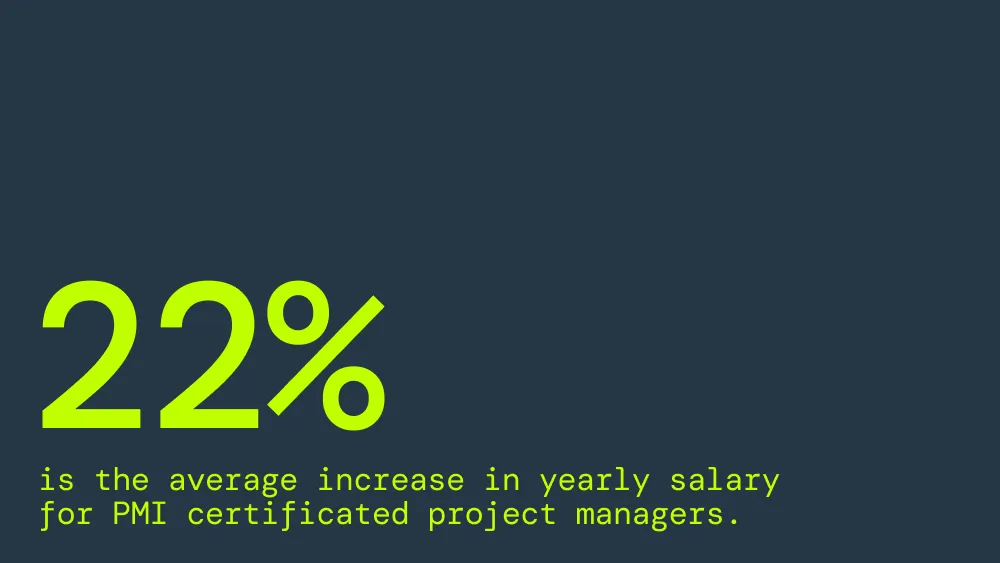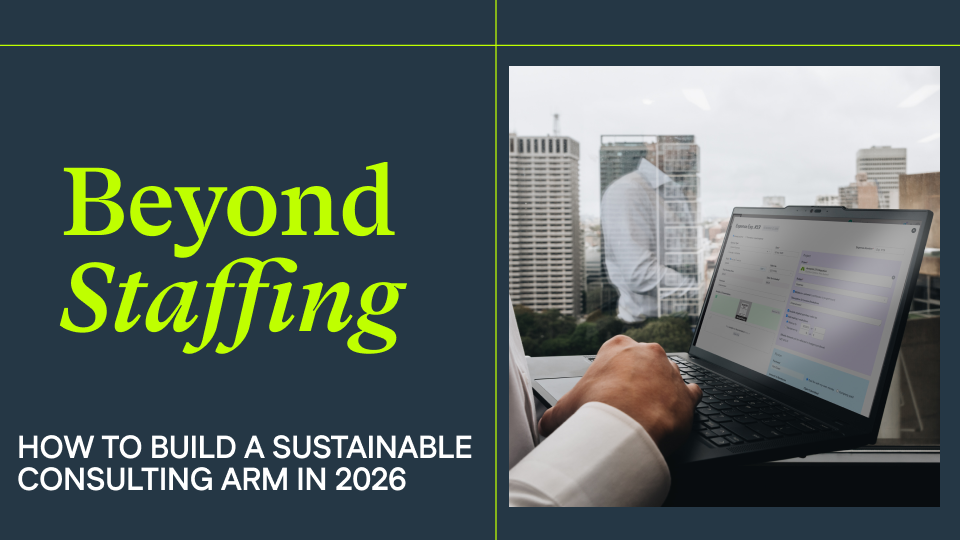What is the Project Management Institute (PMI)?

Today, we explore the PMI's history, courses, and whether the ROI is worth it for your business.
The Project Management Institute (PMI) is an international organization dedicated to helping professionals upskill by providing certifications, resources, and standards acknowledged worldwide.
Since its inception in 1969, the institute has been key in creating professional credibility among project managers by providing them with formal qualifications such as the Project Management Professional (PMP) certification, which is held by more than 1.2 million professionals worldwide.
Certified project managers benefit from a significant 22% salary increase, reflecting the value PMI brings to the profession. Their global standards, like the PMBOK Guide, aren’t just guidelines—they're proven strategies, with 70% of projects achieving greater success when these best practices are applied.
What really stands out about PMI is its dedication to ongoing professional development. With over 300 local chapters, members are constantly in touch with the latest innovations, trends, and tools. This network of 650,000 professionals creates a powerful community for sharing knowledge and insights, strengthening the profession as a whole.
In total, project managers using PMI's frameworks oversee projects with a combined value of $4.5 trillion annually.
Do PMI certifications matter in the real world?
The ROI of obtaining a PMI certification can vary depending on individual goals and your firm’s needs. On one hand, PMI-certified project managers typically see a 22% salary increase, and hiring managers often prefer candidates with recognized certifications, which can make a difference in competitive job markets. The certification provides a structured approach to managing complex projects, which can be particularly beneficial for those working in industries with large-scale, high-value projects.
On the other hand, the value of PMI certification may depend on the specific requirements of the industry or company. Some firms may prioritize experience over certification or have their own internal frameworks.
As a result, while PMI certification can open doors and increase earning potential, its return on investment may vary depending on the individual's career path and the organization’s project management approach.

The PMI’s impact on Project Management
PMI's journey began in 1969 when a group of project managers saw that there was no consistent or standardized approach to managing projects across industries. At the time, project management was largely informal, with professionals relying on their own methods, which varied widely and often led to inefficiencies, delays, and cost overruns. This lack of structure made it difficult for teams to collaborate effectively or predict project outcomes reliably.
This group founded the Project Management Institute (PMI) in Pennsylvania, USA, with the goal of establishing formal project management practices and fostering a professional community.
Here’s a timeline of PMI’s growth and key milestones:
1969: PMI is founded.
1984: PMI holds its first Project Management Professional (PMP) certification exam, establishing its role in certifying project managers.
1996: The first edition of the PMBOK Guide (Project Management Body of Knowledge) is published, setting the foundation for global standards in project management.
1999: PMI achieves international recognition with the American National Standards Institute (ANSI) recognizing the PMBOK Guide as a standard.
2000s: PMI expands its certification offerings, including the Program Management Professional (PgMP) and PMI Agile Certified Practitioner (PMI-ACP), reflecting the increasing complexity of the project management profession.
2010s: PMI reaches a global community of over 500,000 members and continues to grow its influence by integrating agile practices into its standards and certification programs.
2019: PMI celebrates its 50th anniversary, marking five decades of influence and leadership in the project management industry. By this point, PMI-certified professionals oversee projects worth trillions of dollars annually.
2020s: PMI adapts to the evolving project management landscape, integrating digital transformation, agile frameworks, and sustainability into its standards and certifications, while continuing to serve a global community of over 650,000 professionals.
You’ve probably encountered some aspects of the PMI framework, even if you haven’t taken the courses yourself. The PMBOK Guide set the standard for the project management lifecycle, covering the key phases of initiating, planning, executing, monitoring, and closing projects. PMI also introduced the now-fundamental concept of the triple constraint, which focuses on balancing scope, time, and cost.
Their Work Breakdown Structure (WBS) is widely used to break down and organize project tasks, while Earned Value Management (EVM) provides a reliable method for measuring project performance.
PMI also brought risk management to the forefront, ensuring that risks are consistently identified and addressed throughout a project.

Tops certifications and their costs
The PMI offers some of the most respected and widely recognized certifications in the field of project management. Below is a breakdown of some of the most well-regarded certifications, their costs, and key details to help you choose the one that’s right for you.
Project Management Professional (PMP)
The PMP is PMI’s flagship certification, designed for experienced project managers. It covers various methodologies, from traditional project management approaches to agile, and is recognized globally.
Cost:
- PMI Member: $405
- Non-member: $555
Certified Associate in Project Management (CAPM)
The CAPM is ideal for individuals new to project management or those looking to establish a strong foundation in the field. It focuses on basic project management principles, terminology, and processes, making it a stepping stone for pursuing the PMP in the future.
Cost:
- PMI Member: $225
- Non-member: $300
Agile Certified Practitioner (PMI-ACP)
The PMI-ACP is designed for professionals working in agile environments and covers a wide range of agile methodologies, including Scrum, Kanban, and Lean.
Cost:
- PMI Member: $435
- Non-member: $495
Program Management Professional (PgMP)
This certification is for experienced program managers who oversee multiple related projects that are aligned with an organization’s strategic goals.
Cost:
- PMI Member: $800
- Non-member: $1,000
Portfolio Management Professional (PfMP)
The PfMP certification is designed for portfolio managers responsible for aligning projects, programs, and operations with strategic objectives.
Cost:
- PMI Member: $800
- Non-member: $1,000
What does it mean to be a member of PMI?
Becoming a PMI member comes with several benefits, like discounts on certification fees and access to valuable resources such as the PMBOK Guide. It also connects you to a global network of project managers, offering opportunities for career growth and continuing education. However, the true value of membership depends on how actively you engage with the resources and participate in the community.

The future of project management and how PMI is adapting
The future of project management is being shaped by rapid technological advances, changing work environments, and the increasing complexity of projects. PMI is adapting to these trends by embracing hybrid management approaches and leveraging emerging technologies such as artificial intelligence (AI), automation, and data analytics.
One key shift is the growing use of hybrid project management frameworks. PMI's recent research shows that organizations are increasingly combining predictive (waterfall) and agile practices to handle diverse project demands. By 2023, the adoption of hybrid approaches had risen by 57% compared to 2020, reflecting their ability to provide flexibility and adaptability in uncertain environments.
Summary
PMI has played a crucial role in shaping the project management profession by providing globally recognized certifications, resources, and best practices.
Through qualifications like the PMP and the PMBOK Guide, PMI has enhanced the credibility of project managers, leading to increased success rates for projects and higher salaries for certified professionals.
Its ongoing commitment to professional development and its vast network of members help ensure that project managers remain at the forefront of innovation and excellence in the field.

Related Articles

From IT Staffing to Consulting: What It Really Takes to Succeed
The IT staffing industry is changing fast. Slowing tech hiring, tighter procurement controls, increased MSP involvement, and rapid advances in AI are forcing staffing firms to rethink their business models and their path into IT consulting. The reality is, although most staffing firms want to develop a consulting/ SOW arm, only a small percentage of firms who set out to do it, will find success.

